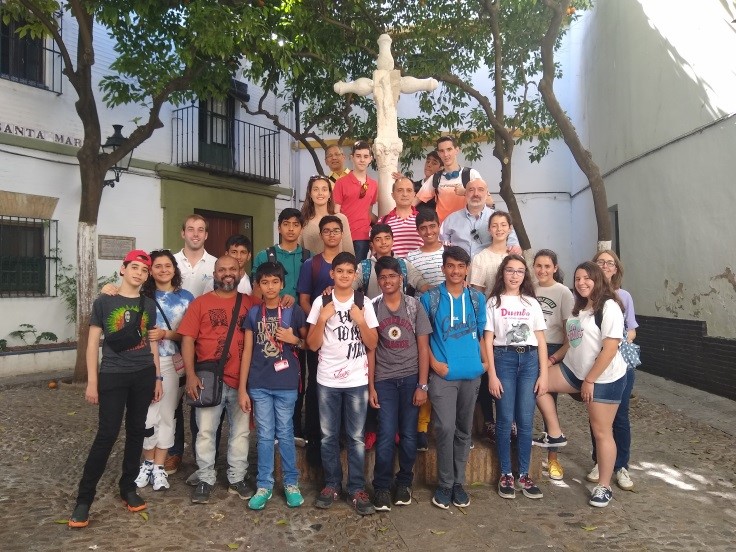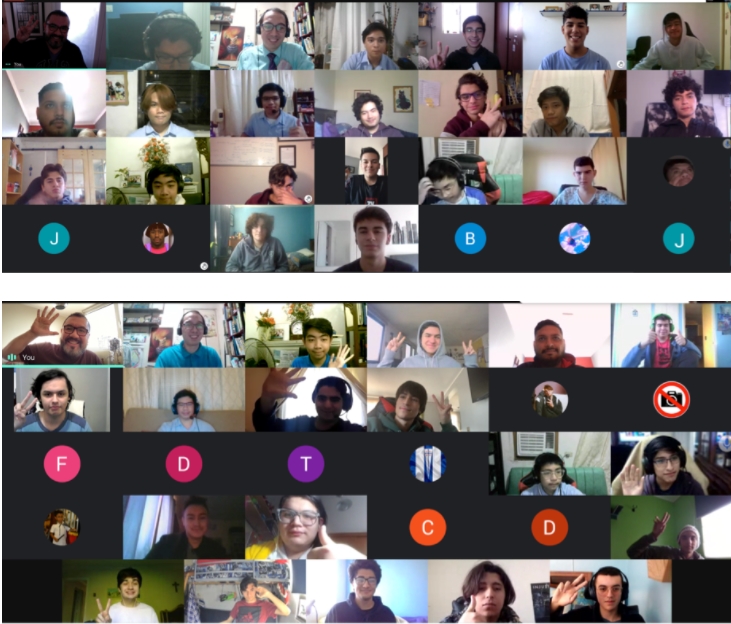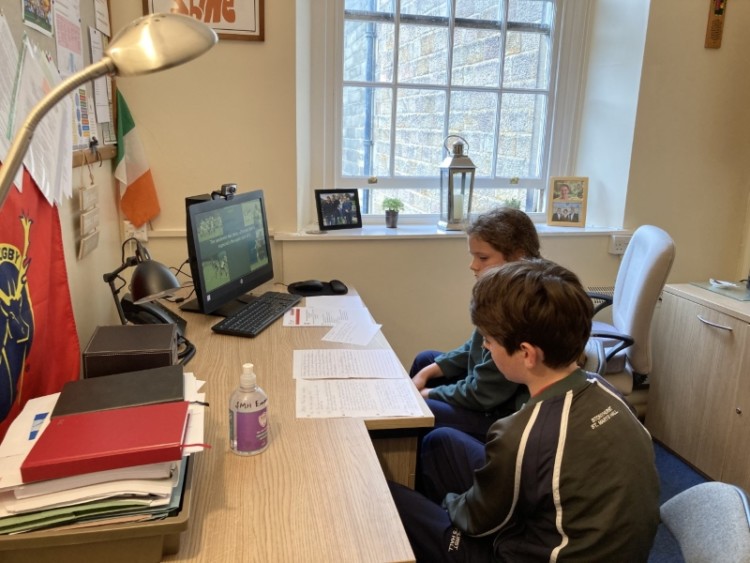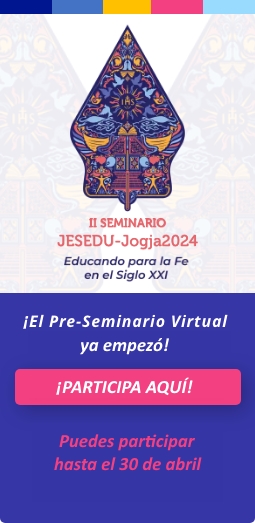«Partnerships are essential for achieving global goals. No one country or organisation can solve the world’s problems on its own» (Kofi Annan).
Intense and accelerated globalisation processes since the fall of the Berlin Wall have made countries, governments, organisations, and civil society as a whole increasingly interconnected and interdependent. Humanity must therefore work together to optimistically find ethical and science-based solutions to common international problems such as structural poverty, climate change, pandemics, migration, extremism or misinformation.
In today’s globalised society there is an undeniable need for more innovative projects and inspirational initiatives between schools and their community members (e.g. students, families, teachers, pastoral staff) around the world.
In this context, collaborative partnerships constitute a central cornerstone for the success of education and in the best interest of students. For this reason, only through strategic alliances, shared networking spaces, technology, and a common multidisciplinary approach can the challenges and opportunities of an increasingly complex world be understood and met creatively.
Of course, education partnerships are not always easy or straightforward. They require trust, communication, coordination, and a willingness to make compromises. However, the benefits of partnerships can certainly outweigh the challenges.
In Educate Magis, the global community of educators from the Jesuit Global Network of Schools, we are continuously working on building bridges between the more than 14,000 members. Our wider educational community has made a major contribution to this goal in the eight years since its inception.
Therefore, as an illustration of how global collaboration and work can be achieved within the Ignatian paradigm and ethos, this is a list of international partnerships between Jesuit schools that have been initiated or facilitated with the strategic support, technical assistance, and expertise of many in our global community.
1. Connected Classroom (Italy, 2022)
This fascinating initiative between the ‘Istituto Sociale Scuola dell’Infanzia’ (Turin) and the ‘Gonzaga Campus Scuola dell’Infanzia’ (Palermo) is an excellent example of how real cooperation and global citizenship can and should be fostered from an early age, starting from the primary school level.
 This partnership was developed with the logistic and technical support of the Global Citizenship Coordinator for Educate Magis, to organise online work meetings between teachers/coordinators and create remote classes.
This partnership was developed with the logistic and technical support of the Global Citizenship Coordinator for Educate Magis, to organise online work meetings between teachers/coordinators and create remote classes.
The focus of this project was to enable creative and artistic interaction between very young learners (3-5 years old) while developing their global citizenship skills and helping them to experience the joy of discovering the world.
This was initially achieved by working on an English language storybook and enhancing comprehension-listening abilities from two different geographical locations in Italy. Undoubtedly an inspiring model of how global education starts at the local level… and maybe in the next town or neighbourhood!
To read more about this collaboration follow this link: Connected Classroom in Italy – A collaboration between Istituto Sociale Scuola dell’Infanzia, Turin and Gonzaga Campus Scuola dell’Infanzia, Palermo – Educate Magis
2. Exchange Program (Spain-India, 2017)
This groundbreaking and ongoing cross-cultural learning programme was initiated between ‘Colegio San José de Villafranca’ (Spain) and ‘Campion School’ (India) through our Educate Magis online platform used as a hub to connect and collaborate globally.

It is the oldest and most consolidated global citizenship exchange programme of ‘Colegio San José de Villafranca’ since its launch at the end of 2015.
Through a series of online educational projects and initial reciprocal on-site visits (2017, 2019, 2022, 2023), students had the opportunity to connect and build authentic interpersonal relationships.
The fact that the students themselves were involved in engaging learning processes to discover, appreciate and promote cultural diversity (for example by visiting historical sites in a different region of the world) helped to generate reflective and transformative life experiences.
According to the Coordinator of Global and International Citizenship at ‘Colegio San José de Villafranca’, Oliva Casasola, this programme has so far provided an excellent opportunity to develop students’ skills, interest and understanding of what diversity and authentic intercultural communication mean from an Ignatian spirituality perspective.
In this respect, this programme goes beyond the traditional experience of other initiatives of the past, which were for example only linguistic in nature.
While students certainly learn or improve a second language, the real benefit of this international exchange according to Casasola is the awareness and understanding of contemporary development issues (e.g. sustainability, carbon footprint, fair trade) and the creation of deep, friendly and everlasting relationships between people, their families and communities on a global scale.
As an emblematic example of such kind of lasting relationships, one of the Indian students from the first year of the exchange program (Ram Rathod) later jointed the school in Villafranca, Spain, where he completed his high school certificate before successfully starting his academic studies in International Relations at the Loyola University Andalusia.
To read more about this exchange program follow this link: Educate Magis Exchange Program – Educate Magis
3. Virtual Student Exchange (Philippines-Chile, 2021)
As countries struggled with the effects and challenges of Covid-19, many Jesuit schools around the world sought to find and propose alternative ways to continue and enhance education in their classrooms during the pandemic.

In this case, ‘Colegio San Ignacio Alonso Ovalle’ (Santiago, Chile) and ‘Ateneo de Manila Grade School’ (Philippines) provide an exceptional reference and inspiring example of how partnership, collaboration and technology can create and extend true intercultural bridges of solidarity, friendship and common international learning.
This initiative, later repeated three times, and which was originally intended to go beyond national or continental borders in times of lockdown, has allowed students from South America and Southeast Asia to meet and actively interact with each other through the Educate Magis online platform.
In this context, David Chamorro Pereira, Head of International Affairs of ‘Colegio San Ignacio Alonso Ovalle’ in Chile, explained that the pandemic provided an important historical opportunity to rethink education, virtual mobility and international networking, as teachers and students felt physically and socially isolated.
Although this online exchange required careful planning and coordination of an enjoyable e-meeting between two nations separated by more than 18,000 kilometres and 12 different time zones, the results were promising.
In the end, global citizenship was truly experienced and built.
To read more about this virtual student exchange program follow this link: Virtual Student Exchange 2021 – Philippines and Chile just a screen away – Educate Magis
4. Collaboration Project (Malta-India-Philippines, 2022)
A meaningful and enriching learning experience centred on environmental issues for young students and educators alike was facilitated by Educate Magis and its welcoming interactive online community platform.
 In this context, a collaboration involving ‘St. Aloysius College Primary School’ (Malta), ‘St. Aloysius Gonzaga School’ (India) and ‘Ateneo de Manila Grade School’ (Philippines) helped students from three distant corners of the planet to come together and understand their shared links as global citizens and common caretakers of our planet.
In this context, a collaboration involving ‘St. Aloysius College Primary School’ (Malta), ‘St. Aloysius Gonzaga School’ (India) and ‘Ateneo de Manila Grade School’ (Philippines) helped students from three distant corners of the planet to come together and understand their shared links as global citizens and common caretakers of our planet.
Thanks to this innovative partnership, participants were able to discover new faces and identities and learn from different realities of the world. At the same time, they recognised that their respective schools are an integral and essential part of a larger Jesuit family and international community.
This unique intercontinental experience demonstrates how connecting with other people from different countries or continents can help to bring different cultural perspectives and multi-disciplinary approaches to common local and global challenges.
To read more about this collaboration project follow this link: Connected Classrooms a Collaborative Educate Magis project between Malta, India and the Philippines – Educate Magis
5. The Red Chair Project (UK-Malta-Italy-Ireland, 2021)
As a result of careful planning, high motivation and a little bit of curiosity (always necessary!), two fascinating inter-school dialogues and virtual experiences took place between pupils from ‘Scoil Iognaid’ (Galway-Ireland), ‘Gonzaga International School’ (Palermo-Italy) and ‘St Aloysius College’ (Malta).

These online meetings helped students to use and explore the innovative and powerful campaign named ‘The Red Chair’.
The aim of this project was to raise awareness of the right to education and the fact that millions of children and young people around the world are still denied this inalienable right.
Through intense dialogue and an open exchange of views, students were able to discover and analyse how a range of development issues (such as poverty, lack of infrastructure, gender inequality, child labour, climate change and conflict, etc.) are some of the determining factors in the lack of education in many developing nations.
Certainly, this learning experience has been fundamental to the understanding of the right to education and, at the same time, to the possibility of emphatic engagement, which is one of the essential values of global citizenship to be learnt from an early age.
To read more about this iniciative follow this link: The Red Chair Project – Inter-school dialogues amongst Jesuit Schools in UK, Malta, Italy and Ireland – Educate Magis
6. Connected Classroom (UK-Colombia, 2020)
‘St Mary’s Hall’ (UK) and San Luis Gonzaga School’ (Colombia) provide a practical and ideal example of genuine team collaboration and strategic partnership when working together towards a common and specific goal.

In this case, through a multidisciplinary analysis and discussion coordinated and facilitated by the Global Citizenship Coordinator at Educate Magis the students learned what it is like to live in the vicinity of an active volcano.
What was particularly important for this learning experience was not only the relevant geographical knowledge about different types of active and non-active volcanoes that had been gathered beforehand, but especially the real and empathic experiences of participants related to the topic.
In this context, it is worth noting that the school in Manizales (Colombia), is only 52km from the infamous ‘Nevado del Ruiz’.
This volcano, which erupted in 1985 and killed an estimated 25,000 people, is still a threat to the towns and villages in the area.
If global education is about learning about the world and its multiple opportunities, it is also about becoming aware of, getting involved in, and preventing increasing natural disasters and population displacement everywhere.
To read more about this Connected Classroom follow this link: My Students Learned what it’s Like Living so Close to an Active Volcano on a Connected Classroom Through Educate Magis – Educate Magis
We would love to hear about other inspiring global partnerships taking place – if you would like to share your experience with the global community, please leave a comment below or drop us a message at info@educatemagis.org
Likewise, if you are interested in developing a global partnership with another Jesuit school and would like some support or assistance, please let us know – the Educate Magis team would be delighted work with you on this.
Inicia sesión o Hazte miembro
para crear y ver comentarios
